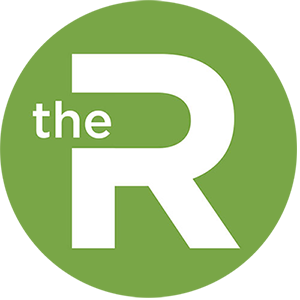Overwhelmed by a wave of refugees and what they call indecision in the EU, Austria and its southern neighbors along the Balkan migrant route agreed to tighter border controls at a meeting held in Vienna on February 24 and warned that sooner or later they will have to shut their doors entirely
As Vienna pursued measures to stem a continuing migrant influx, neighbouring Hungary’s anti-immigrant government announced it would hold a referendum on EU plans for mandatory migrant quotas that it has already rejected.
The moves appeared to deal further blows to a German-led quest for an EU-wide solution to a crisis threatening the bloc’s cohesion, though Austria has argued that what it is doing will spur others to eventually agree on a common European strategy. As migrants cradling young children blocked a motorway in central Greece demanding onward passage to Macedonia, Greece’s migration minister said the border crackdown was causing a “mini humanitarian crisis” on its soil.
Hosting a meeting with Balkan states straddling the main migrant route into the heart of Europe, to which Greece was not invited, Austria said national controls were necessary in the absence of measures embraced by all 28 EU members to stem the tide of people into Europe from the Middle East and Africa. A joint statement issued on Feb 24 by the 10 countries in attendance in Vienna said participants had agreed to improve cooperation and turn away “migrants not in need of international protection”, though that term was not defined.
“The migration flow along the Western Balkans route needs to be substantially reduced,” said the statement by Austria and countries along the migrant corridor between it and Greece, such as Serbia and Macedonia.
Austria, last stop on route to Germany for hundreds of thousands of migrants have set off what it calls a “domino effect” of national border controls limiting the flow of people northwards. The small Alpine republic says it is overwhelmed by the influx, but the UN refugee agency said the barriers to movement imposed by Western Balkan states fly in the face of basic refugee protection rights.
“(These) restrictions probably go against even European rules and regulations and certainly against basic refugee protection laws,” Filippo Grandi, the UN High Commissioner for Refugees, told reporters in Athens.
Austria was unrepentant, despite rebukes from Germany which is pushing for a much-delayed European response to the crisis, including the processing of migrants as they reach Greece and an agreement with Turkey to slow the exodus of people from there.
“There is still no European solution in sight,” Austrian Foreign Minister Sebastian Kurz told reporters in Vienna. “For that reason, it is necessary for us to take national measures.” EU leaders will hold a special migration summit with Turkey on March 7, European Council President Donald Tusk and European Commission President Jean-Claude Juncker said on Feb 24.
Austria says it is overwhelmed by the influx, but the UN refugee agency said the barriers to movement imposed by Western Balkan states fly in the face of basic refugee protection rights
In Budapest, Prime Minister Viktor Orban said Hungary would hold a referendum on European Commission plans for mandatory migrant quotas applied to each member state, an initiative his government has rebuffed. He has said migrant quotas would redraw the ethnic, cultural and religious map of Hungary and Europe. Greece filed a rare diplomatic protest with Austria for excluding it from the meeting of foreign and interior ministers in Vienna, held a day before an EU interior ministers’ gathering in Brussels.
Austria accused Germany of sending mixed messages on immigration. It said Berlin should decide between backing Greece in letting migrants continue their journeys into Europe and telling other countries not to let too many people through.
Austria has mainly served as a conduit into Germany for migrants but has absorbed a similar number of asylum seekers relative to its much smaller population.
Public anxiety about the influx has contributed to a rise in support for the far-right opposition, and Vienna’s coalition government has taken an increasingly hard line on immigration despite initially throwing open the country’s borders. Austria announced mid of February that it would limit the number of asylum claims at its southern border, on the main migrant route, to 3,200 and introduce a daily cap on asylum claims thereof 80, prompting criticism from the European Commission. Kurz complained that Greece had failed to stop migrants from travelling on towards Austria and Germany and said a lack of political will within the EU had prevented the introduction of coordinated bloc-wide measures to deter migrants from coming.
“There is no readiness (in Greece) to reduce the flow,” Kurz said, describing a recent meeting of EU foreign ministers. “The interest on the Greek side is only in transporting refugees as quickly as possible towards central Europe.”
“We all believe in a European solution. We are also all working towards a European solution,” Austrian Interior Minister Johanna Mikl-Leitner told reporters. “There is just one question: when will this European solution come?”.
